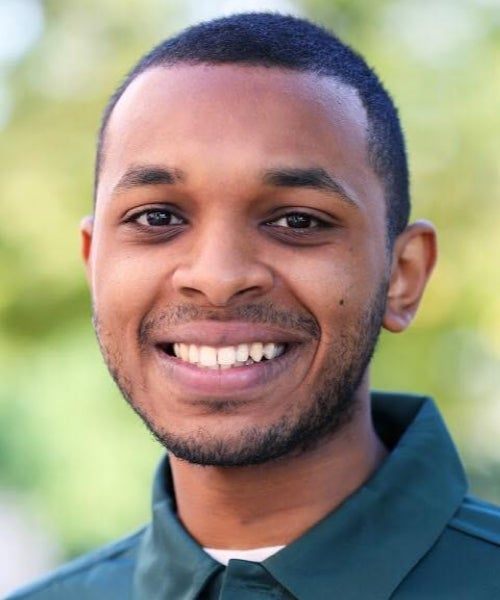Mohammed Jibriel

Mohammed Jibriel
“I am interested in global health because it gives me the opportunity to focus on the intersection of social justice and health unifying my two areas of interests.”
About Mohammed
Mohammed Jibriel (G’20) is a graduate student at the Department of Microbiology and Immunology studying Biohazardous Threat Agents and Emerging Infectious Diseases and a student fellow with the Global Health Initiative (GHI). As a fall 2019 GHI student fellow, he will be working as a research assistant with Dr. Wolfgang Rennert on a project focusing on the immunogenicity and safety of the ROTAVAC vaccine. Read his blog post for GHI here.
Tell us why are you interested in global health?
I did not know much about the field of global health until my sophomore year in college when I joined the North Carolina Scholars of Global Distinction program. I have attended several seminars and events, where issues such as human rights and climate change were discussed from a global health perspective opening my eyes to the multidimensional nature of global health. My family is from Sudan, a country that has been experiencing political unrest for more than three decades. That led my parents to immigrate to Saudi Arabia in search of a better life. I understood xenophobia and human rights violations early in life and my upbringing has shaped my interests in global affairs in general. I am interested in global health because it gives me the opportunity to focus on the intersection of social justice and health unifying my two areas of interests.
What are some global health events you have participated in on campus/in D.C.?
This semester I am working as a research assistant with Dr. Wolfgang Rennert on a project focusing on the safety and immunogenicity of a new Rotavirus vaccine called ROTAVAC. The vaccine was recently introduced to the Palestinian territories. We are investigating two main components. First, we are looking at the role of public and private partnerships and the challenges posed by the societal fragility of the Palestinian territories. Second, we are investigating a potential association between the vaccine and intussusception in infants. I have also attended several seminar sessions on global health issues at the department of Microbiology and Immunology. Recently, we had a discussion session led by Dr. Dan Chertow, the head of the Emerging Pathogen section at the National Institutes of Health. He discussed the Ebola outbreak in the Democratic Republic of the Congo and how to respond to Ebola epidemics. Our department also hosted Dr. Peter Hotez. Dr. Hotez spoke to us about the geopolitics of vaccines and neglected diseases; the title of his talk was, “Vaccine Diplomacy in an age of War, Political Collapse, Climate Change, and Anti-science.”
What activities are you involved with on campus?
This is my first semester at Georgetown. I am still navigating my way and trying to be more involved on campus. However, I currently serve as a board member of the Medical Center Graduate Student Organization. I am also involved with the Graduate Student Government and the Black Graduate Student Alliance.
What is your favorite part about being at Georgetown?
My favorite part of being at Georgetown is my program of study: Biohazardous Threat Agents and Emerging Infectious Diseases. It is a unique field that brings two areas I am interested in: biological sciences and public policy. I also enjoy all the seminar sessions and the speakers our department constantly hosts.
Tell us about your educational and professional aspirations.
While I have always wanted to become a physician, now I am more interested in scientific research and public policy. While science is moving too fast, policy, on the other hand, is moving too slowly. That is why I want to work in a government agency to help bridge this gap. My current research interest is biosecurity/biodefense and how to reduce the threats posed by advanced biotechnologies, including mutating biological agents, which strengthen their resistance to current medicine, hurting humans, animals and plants.